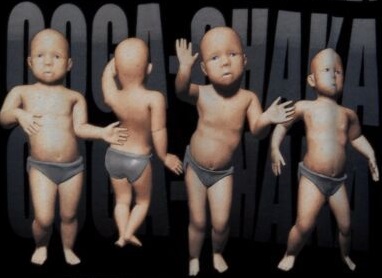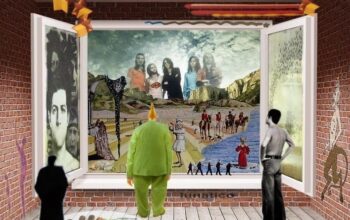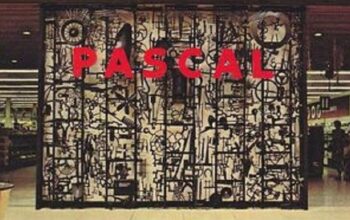Blue Swede – Hooked on a Feeling (1974)
For religious baseball fans, one of the pillars is the sport’s own version of Hajj : one must, at least once in one’s lifetime, make pilgrimage to Boston and take in a ballgame at Fenway. It’s not optional.
I’ve been more than once, but by only my most recent visit in 2014 had the park and its fans made a tradition of singing Neil Diamond‘s Sweet Caroline before the bottom of the eighth. I was looking forward to it all game long and was micromanaging the restroom breaks of my wife and kids – baseball infidels, all – so as not to miss this folk-music event.
I was growing worried that crowdsourced effort would be lacking. After six innings, the home side was down 12-1 (to my team, hah!) and I thought the capacity crowd would dwindle to less than a third and be in no mood for singing.
The Fenway faithful didn’t disappoint. Their team now down 14-2 when the moment came, hardly a soul had bailed on the now-lost game and all 35,000 of those losers (hah!) belted out this moldy wheel of cheese with vim.
Sweet Caroline,
WHOAH! WHOAH! WHOAH!
Good times never seemed so good
SO GOOD! SO GOOD! SO GOOD!
My fam rolled their eyes. I squealed with mirth. Horrible people, Bostonians. Wonderful fans, though.
A couple of years ago, attending a game at my home park, the team marketers decided to emulate the Yawkey way. When the top of the eighth ended, the house sound system blasted, I mean blasted, another early-70s anachronism and scrolled the lyrics up on the jumbotron just to make sure everyone would join in.
Nothing. Apparently someone in the front office missed the memo that said these things just happen organically, spontaneously; that’s really what makes them special. They kept up the charade all season, and after September 2018, it was never heard again.
So much for doing a cover version of a fan experience.
The version of the song they chose, Hooked on a Feeling as recorded by Swedish one-hit (this-hit) wonder Blue Swede, was itself a cover. Indeed, it’s the definitive version that we remember it by today, largely for it’s novel voice opening, repeated a capella in full throat:
Ooga-chaka, ooga-chaka,
Ooga, ooga, ooga-chaka
You can be sure of two things: 1. these are not Swedish words, and 2. the guys who originally wrote and recorded it would never in a million years have injected such chant into the original release.
There’s a story here.
Country songwriter Mark James penned the simple love ditty in 1968 for country singer BJ Thomas (Raindrops Keep Fallin’ on my Head) who recorded and released it as a single that year. It enjoyed heavy rotation on North American radio, but endured little afterward. What happened to the song afterward, though, is quite improbable.
A year later, Jamaican singer-songwriter Boris Gardiner released an instrumental version of the song with a homeland twist: steel drums accompany the melody over an otherwise faithful re-rendering. It’s a small change, but it gives the song a completely different flavour. Indeed, it could pass for an indigenous work.
And although Gardiner’s version never landed in the US, it did have some stickiness on the island. Two years later, another Jamaican act called The Twinkle Brothers took Gardiner’s lead and lent some more embellishments to the song, which included not only the viral Ooga-chaka vocal hook but also the the scalar melisma on the chorus vocal, and the horn response that immediately follows:


BJ Thomas’ original melody was considerably duller:

With these three elements – the Ooga chant, the chorus melody and the horn countermelody – the definitive cover was now out there. There was just one problem: American listeners were completely unexposed to it, and the vanilla BJ Thomas cone was still the canonical version.
Well, across the pond, top schlock pop fop Jonathan King (Everybody’s Going to the Moon) heard the Twinkle Brothers version and, as if to draw it from a holster, released exactly the same arrangement with all its exegeses later that same year in November 1971 (King’s version is sometimes regarded as the definitive ‘Ooger’. It isn’t. The Brothers Twinkle came first). It was enough to keep his mantle status as the JKing of Pop, but again, in the US, bupkas.
Swedish music scene to the rescue. A cover band named Blaublus, meaning blue jeans, released the Twinkle version in Sweden and Norway. It exploded on impact. So their label decided to position the song for release in North America, anglicizing the band’s name to Blue Swede (the punnier version of Blue Suede) and packaging the song on a full-length LP.
Their timing was propitious. AM radio waves were awash in 1974 with a bevy of silly novelty songs (Everybody was Kung Fu Fighting led the way); an ooga here, a chaka there, and you got yourself a number one hit, and a completely original rendering of a song that was otherwise dead as a mordant.
You just don’t have an eighth-inning stretch, is all.



